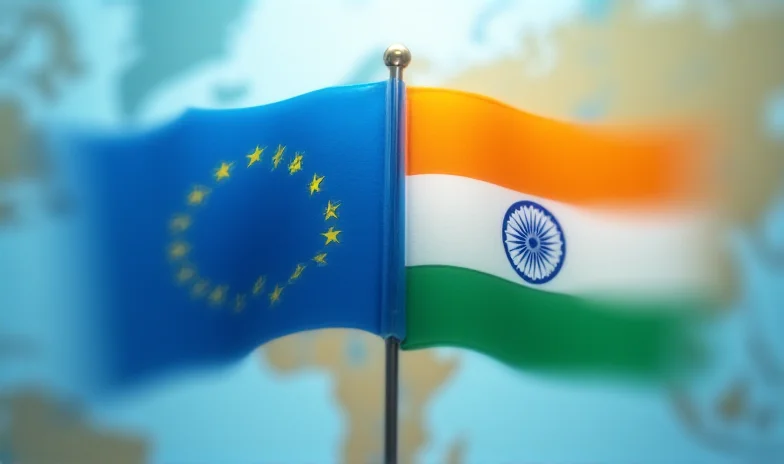The European Union is considering a defense and security partnership with India, signaling a move to strengthen strategic ties in the face of evolving global security dynamics. This initiative, announced by EU Commission President Ursula von der Leyen, aims to foster collaboration in areas such as joint defense initiatives, intelligence sharing, and broader security cooperation. It reflects the EU’s increasing focus on engaging with key Asian partners.
EU-India Partnership on the Horizon
While detailed plans are yet to be unveiled, the proposed partnership between the EU and India underscores the growing importance of strategic alliances in a complex geopolitical landscape. The collaboration could potentially involve joint military exercises, technology transfers, and coordinated responses to emerging security threats. This move aligns with the EU's broader strategy to diversify its partnerships and enhance its influence in the Indo-Pacific region.

“The EU is committed to working with India to address shared security challenges,” stated a spokesperson for the EU Commission. “We believe that a stronger partnership will benefit both regions and contribute to a more stable and secure world.”
Cyberattacks Target Italian Institutions
Meanwhile, Italy has been grappling with a series of cyberattacks, allegedly carried out by pro-Russian hackers. The group NoName057(16) has claimed responsibility for targeting several key governmental and political platforms, including the Quirinale website, the official residence of the Italian President. Other targets included the Superior Council of the Judiciary (CSM) portal and the Roman section of the political party Fratelli d'Italia (FdI).
These attacks, described as a coordinated cyber offensive, highlight the vulnerability of critical infrastructure and the increasing threat posed by state-sponsored or affiliated hacking groups. The Quirinale website being targeted is particularly significant, suggesting a deliberate attempt to disrupt or undermine the Italian government.

Priest Targeted in Sophisticated Cyberattack
Adding to the concerns, Priest Don Mattia Ferrari has revealed that he was the victim of a sophisticated cyberattack, allegedly "supported by government entities." Ferrari, involved in the "Paragon Case," has filed a complaint in Bologna after investigations into the threats he received were closed. This incident raises questions about the potential abuse of cyber capabilities and the targeting of individuals critical of governmental actions.
The convergence of these events – the EU's pursuit of a defense partnership with India and the cyberattacks targeting Italian institutions and individuals – underscores the complex and interconnected nature of modern security challenges. From geopolitical alliances to cyber warfare, nations are increasingly navigating a landscape where traditional boundaries are blurred and new forms of threats are constantly emerging.

The Italian government has vowed to strengthen its cybersecurity defenses and investigate the attacks thoroughly. “We are taking these threats very seriously and will do everything in our power to protect our citizens and institutions,” said a government official.
"Cybersecurity is now a top priority for our nation," they added.
